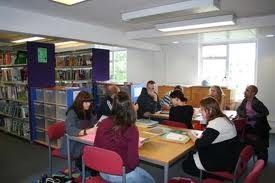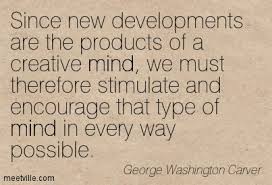Can academic qualifications help alone to make it big in life?
 In our society we are tremendously obsessed with academic qualifications; as a result, we check qualifications of the bride and groom before finalizing matrimony, before giving membership in a club, an association, a forum, in a sports club, while applying for a job, qualifications are checked. A person’s aptitude, ability and skill are judged by his/her academic qualifications. Any bio-data résumé or curriculum vitae are deplorable without the inclusion of education qualifications. Therefore it is an impromptu rule of both the corporate world and the social world that a man’s academic qualification is a key to his entry to a coveted position in society.
In our society we are tremendously obsessed with academic qualifications; as a result, we check qualifications of the bride and groom before finalizing matrimony, before giving membership in a club, an association, a forum, in a sports club, while applying for a job, qualifications are checked. A person’s aptitude, ability and skill are judged by his/her academic qualifications. Any bio-data résumé or curriculum vitae are deplorable without the inclusion of education qualifications. Therefore it is an impromptu rule of both the corporate world and the social world that a man’s academic qualification is a key to his entry to a coveted position in society.
 Education does help add finesse to life; it helps developing moral, civic values. It prepares us with good manners, proper behavior, hygienic living. Aacademic education gives people an encompassing experience of life, with lots of opportunities to meet people from different walks of life and to consider the importance in life of values and culture. These are necessary for a person’s growth. Educated citizens help in building a civilized nation. It uplifts our morals and ethics by exposing us to the great thinkers of the past. It makes us aware of our rights and liberties, and helps establish a liberal democracy with active citizens and an active media.
Education does help add finesse to life; it helps developing moral, civic values. It prepares us with good manners, proper behavior, hygienic living. Aacademic education gives people an encompassing experience of life, with lots of opportunities to meet people from different walks of life and to consider the importance in life of values and culture. These are necessary for a person’s growth. Educated citizens help in building a civilized nation. It uplifts our morals and ethics by exposing us to the great thinkers of the past. It makes us aware of our rights and liberties, and helps establish a liberal democracy with active citizens and an active media.
But when we spend twelve years of our life in schooling, and several more years of our precious life in college on graduation and often post graduation, and then one fine day it strikes us that our degrees are not required for success; why because Bill Gates, Steve Jobs, Dhirubhai Ambani and many other rich people were schools dropouts and they built great fortunes!! Unfortunately the materialistic world has changed the concept of success.
We are also a fixated society about grades in qualifications. We have a wrong notion that grades alone can help getting success in life. If success and opportunities were measured by grades then the corporate world and potential marriage partners would not ask for bio-data, where other credentials are also mentioned. Nor would they interview the candidates in order to find out what they are like as people. Education helps us modify our people skills, our thinking, our character and our inventiveness. It prepares us for life life’s success. IT helps in honing our physical characteristics, personality, and a willingness to work hard. Grades are really irrelevant.
 We have somewhere misinterpreted grades/marks in education. We attach so much importance to marks that it has become a rat-race where every student chases grades and therefore the entire perception of success and affluence has changed. Rather than studying to reach one’s full potential, children simply mug up for examinations. Further, they get frustrated when they don’t get jobs. More time is spent in job hunting than in education. Many people find themselves in the wrong profession and lacking job satisfaction. The business atmosphere is highly politicized, favoritism plays key role, and we see wrong people in big positions. In short, our idea of education has got mistaken, our idea of prosperity is mistaken, and our definition of success is changed. With so many years of education finally we misread that if anyone is able to save his/her job then he/she is successful!
We have somewhere misinterpreted grades/marks in education. We attach so much importance to marks that it has become a rat-race where every student chases grades and therefore the entire perception of success and affluence has changed. Rather than studying to reach one’s full potential, children simply mug up for examinations. Further, they get frustrated when they don’t get jobs. More time is spent in job hunting than in education. Many people find themselves in the wrong profession and lacking job satisfaction. The business atmosphere is highly politicized, favoritism plays key role, and we see wrong people in big positions. In short, our idea of education has got mistaken, our idea of prosperity is mistaken, and our definition of success is changed. With so many years of education finally we misread that if anyone is able to save his/her job then he/she is successful!
 If we look at some very successful people in the world, who are doctors, engineers, researchers and IT, professionals, many of them are employed by people like Bill Gates, Richard Branson, Ambani who have built empires devoid of formal educational qualifications.
If we look at some very successful people in the world, who are doctors, engineers, researchers and IT, professionals, many of them are employed by people like Bill Gates, Richard Branson, Ambani who have built empires devoid of formal educational qualifications.
Does education corrupt minds? I think yes, because by going to schools and college students do rote learning and taking multiple examinations. It forces people to learn and think like millions of other graduates. This spoils chances of some brilliant minds which can come up with the truly mould-breaking insights and “disruptive” ideas on which successful innovations and new business models are built. Our education is not outcome based; today’s students cannot implement and apply what they have learned, they are not capable of putting their knowledge into practice in an increasingly complex and challenging environment. The emphasis, therefore, should be on practical, sensible, workable learning — rather than simply accumulating information which becomes outmoded in shorter span.
 And what about those fake degrees sold by thriving illegal rackets in the market? So many dubious agents are selling degrees and people are buying them. Nexus between state universities, education intermediaries and private/public educational institutions are flouting norms, often jeopardizing the careers of students by conferring on them a degree, which may not be legitimate. And, if such students get trapped, he/she loses job, reputation and chances of making a decent living thereafter.
And what about those fake degrees sold by thriving illegal rackets in the market? So many dubious agents are selling degrees and people are buying them. Nexus between state universities, education intermediaries and private/public educational institutions are flouting norms, often jeopardizing the careers of students by conferring on them a degree, which may not be legitimate. And, if such students get trapped, he/she loses job, reputation and chances of making a decent living thereafter.
 Another question is raised against academic qualification – that is whether it can stop us from becoming a civilization of drunkards, rapists, war-mongers, immoral money launders, criminals, and villains. If you look at countries where the largest numbers of people have higher academic qualifications, they are the ones most affected by social breakdown. Can we call America a successful nation for its wars on Iraq and Afghanistan? Can we call it superior by any chance? Can we call Russia a mighty nation for creating the Crimean crisis? Can we call some fluent Indian and Pakistani politicians wise for not solving the Kashmir issue? Are the “educated” politicians of India and Pakistan solving problems of the innocent Kasmiris? India and Pakistan have fought at least three wars over Kashmir, but still the problem is not resolved. Does education teach us to delay and drag important decisions?
Another question is raised against academic qualification – that is whether it can stop us from becoming a civilization of drunkards, rapists, war-mongers, immoral money launders, criminals, and villains. If you look at countries where the largest numbers of people have higher academic qualifications, they are the ones most affected by social breakdown. Can we call America a successful nation for its wars on Iraq and Afghanistan? Can we call it superior by any chance? Can we call Russia a mighty nation for creating the Crimean crisis? Can we call some fluent Indian and Pakistani politicians wise for not solving the Kashmir issue? Are the “educated” politicians of India and Pakistan solving problems of the innocent Kasmiris? India and Pakistan have fought at least three wars over Kashmir, but still the problem is not resolved. Does education teach us to delay and drag important decisions?
Academic qualifications may not be enough on their own to ensure success, but they indicate that their possessor has got courage, daring, moral values to speak out against any kind of injustice. I think it’s high time we bring in changes in our education system. Today’s academic qualifications have no real relevance to the jobs graduates are employed to do. A few decades ago employers in areas such as banking, engineering, management and government service recruited people straight from school at the age of 15 or 16, trained them on the job and promoted them to higher levels of responsibility according to their ability. And, those people contributed to the growth of businesses and society. Today none of these jobs has changed very much, but all of them require applicants with university degrees. Why has this changed? One reason is that the upper and middle classes are trying to protect their own jobs – demanding new recruits have expensive academic qualifications.
 Our nation needs an education system that excites and stimulates children, providing them with the learning they need and be worthy of to accomplish their potential. This means we need a curriculum of practical and vocational learning alongside theoretical study. This need for change has become more and more critical. Let’s except a simple fact that the world has changed whereas our education system has not changed. The gap is very big. Indeed, it is largely based on a system developed over a century ago. Our assessment standards need change, our pedagogies need change, and we need to educate teachers first. Let’s not make our schools and colleges mere factories churning out graduates – where children are placed on a learning conveyor belt, then sorted, packaged and labeled with degrees.
Our nation needs an education system that excites and stimulates children, providing them with the learning they need and be worthy of to accomplish their potential. This means we need a curriculum of practical and vocational learning alongside theoretical study. This need for change has become more and more critical. Let’s except a simple fact that the world has changed whereas our education system has not changed. The gap is very big. Indeed, it is largely based on a system developed over a century ago. Our assessment standards need change, our pedagogies need change, and we need to educate teachers first. Let’s not make our schools and colleges mere factories churning out graduates – where children are placed on a learning conveyor belt, then sorted, packaged and labeled with degrees.
And finally please understand this – academic qualifications are futile if they are not helping you to lead a happy and peaceful life.












































